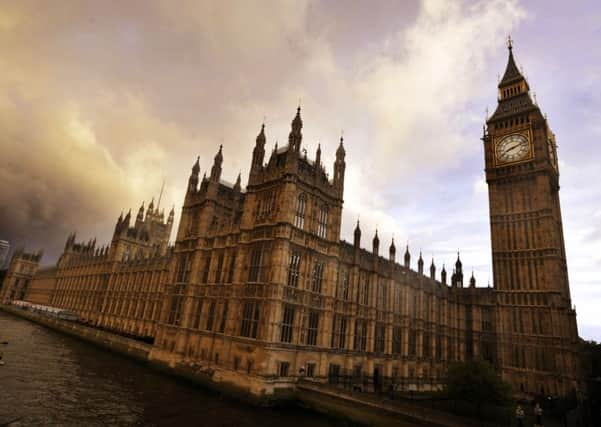Battle for control of Scotland's legal profession


While the majority of us continue the Christmas break into Boxing Day and beyond, the 11 Justices of the Supreme Court may be forgiven for having other matters on their minds. A case has been raised as to whether it is the Government or Parliament which should control the UK relations with other European nations. Even for a non-expert in constitutional matters, this is a fascinating contest. The constitutional doctrine of the separation of powers – to which the UK constitution has never been fully subscribed – identifies three organs of power within the state. These are the executive (the Prime Minister and her Government etc); the legislature (Parliament); and the Judiciary (the Judges and their courts). The doctrine provides that, in order to avoid a potentially oppressive concentration of power, these organs should be separate and distinct from each other and that each should be free to carry out its functions independently. I understand that this doctrine has its origins in the ancient Greek concept of democracy and has been recognised for centuries as an essential protection of individual freedoms in a democratic society. The UK constitution appears at least to aspire to that doctrine, such as when the House of Lords as a court of final appeal was separated from parliament in the creation of the Supreme Court in 2009. In the present case before that court, the executive and legislature are contesting the power to control Brexit and the judiciary are now holding the ring and about to pronounce a verdict.
However, this constitutional wrangle is not restricted to these great issues of state and international treaties but operates also in other issues at different levels.
Advertisement
Hide AdAdvertisement
Hide AdAs far as the legal profession is concerned, we have recently witnessed a contest for the control of that profession. Some years ago, parliament issued legislation which compelled solicitors, on observing suspicious financial activities on the part of their clients, to report these activities to the police, subject to the prohibition of even telling their own clients that they were doing so. With a stroke of the pen, parliament had conscripted the legal profession as an unpaid and non-uniformed branch of the state police apparatus. This, however, proved somewhat inconvenient. For example, when a lawyer in England rendered such a report to the police, that report then formed a document which, under requirements for disclosure, had to be issued to the lawyer’s client when that client was subsequently prosecuted. One might envisage that this development would have somewhat soured that particular solicitor client relationship. The judiciary decided ultimately that that was not on and that solicitor client confidentiality was essential for the proper conduct of the legal process. The legislative provisions were found, by the judiciary, not to be applicable to lawyers who received information in connection with proceedings in court. The jury is still out in relation to the confidentiality of information held by lawyers in other contexts.
More recently, the Scottish Parliament has made another attempt to oust the longstanding judicial control of the legal profession. Under legislation issued in 2010, state Licenced Legal Services Providers (LLSP) would now be able to provide legal services, as well as qualified solicitors. Parliament would determine the regulation of these new LLSPs. At the same time, solicitors would no longer have the exclusive right of ownership and control of legal practices. Such ownership and control would become available to other persons and bodies, including banks and registered companies. Such a development would again place the confidential information, not to mention the money, of clients in the control of non solicitors and, possibly, of here today and gone tomorrow registered companies. It would also promote a conflict between the best interests of the solicitors’ clients and the legitimate profit based aspirations of the proprietor companies’ shareholders. These provisions failed to achieve judicial approval and now appear to have been binned. However, a similar but marginally less intrusive regime operates already in England and further legislation is now in construction to take this forward in Scotland.
The doctrinal battleground for these issues is the control of the legal profession. Does that profession, like any other commercial body, lie within the jurisdiction of parliament or does the legal profession form part of the judicial organ of state and fall to be controlled by the judiciary?
However, we need not worry about these matters today and the verdict of the Supreme Court will be with us soon enough.
Michael Sheridan is senior solicitor at Sheridans